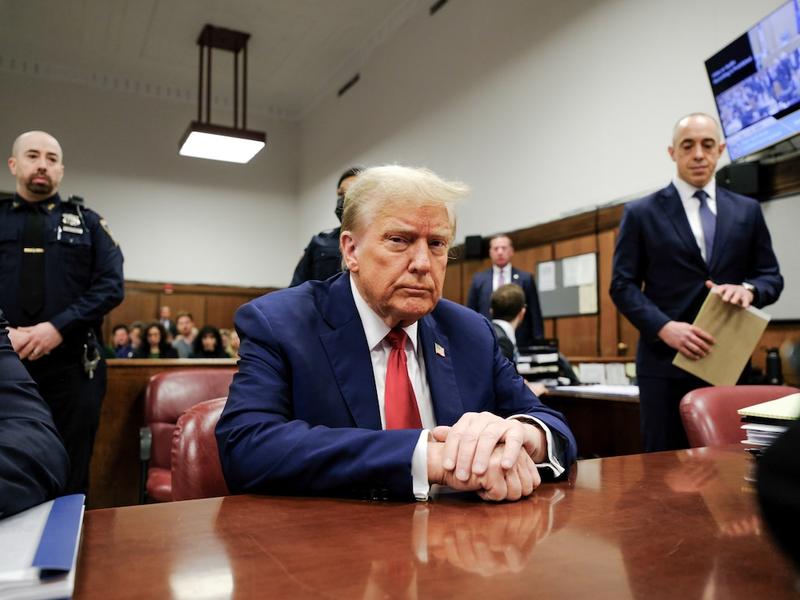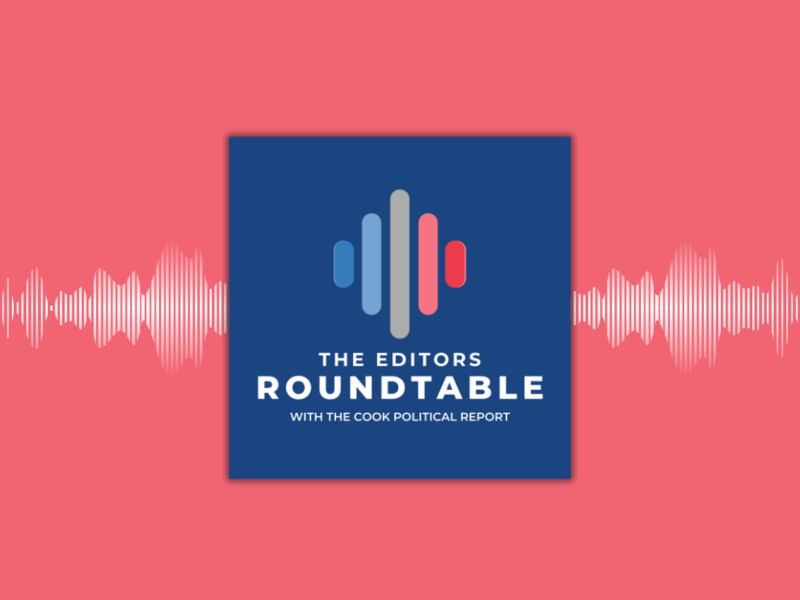
There’s nothing new about calls to replace the Electoral College with a national popular vote. Until recently, partisans on both sides supported a constitutional amendment to do such a thing. Frustration over a polarized and politicized Supreme Court has been going on forever. Activists on both sides have been pushing their parties to abandon the filibuster rule.
But for the first time that I can remember, serious presidential candidates aren’t simply nodding along in sympathy with these grassroots frustrations, but they are openly embracing them.
As Washington Post opinion writer Paul Waldman writes, "But the mere fact that Democratic presidential candidates are even talking about this shows that the party — not everyone in it, but a healthy portion of its members and elected representatives — is simply fed up with getting walked all over for being noble. As I’ve said before, when it came to exploiting loopholes, stomping all over norms and fighting dirty, for some time Republicans have been the party of 'Yes we can' while Democrats have been the party of 'Maybe we shouldn’t.' But that may be changing."
What changed? In a word: Trump.
Democrats watched in shock and horror as Senate Majority Leader Mitch McConnell held up the Merrick Garland's nomination to the Supreme Court and then watched President Trump successfully nominate two conservative jurists. They stood slack-jawed on Election Night as it became clear that for the second time since 2000 a Democrat would win the popular vote, but lose in the Electoral College. Even as they celebrated Democrats’ flipping the House in 2018, they lamented the fact that even in such a strong political environment they were unable to pick up seats in the Senate. And, of course, they fume daily about the 'norms' and 'precedents' that President Trump is shattering while his supplicants in his party sit idly by.
Embracing or rejecting ideas that have been routinely dismissed by serious political practitioners as unrealistic also serves, as the Washington Post’s James Hohmann writes to, "separate the pragmatists from the ideologues in the Democratic contest." The ideolgues argue that the political system and the rules are irredeemably flawed and need to be deconstructed and rebuilt. The pragmatists worry that members of their party are using the 'system' as an excuse for why they are losing elections, instead of looking more deeply at why/how they have failed.
For example, Senators Michael Bennet, Amy Klobuchar and Cory Booker are throwing cold water on the idea of adding more justices to the Supreme Court, arguing that it will devolve into tit-for-tat retribution for the foreseeable future. Meanwhile, Senators Kamala Harris, Elizabeth Warren, Kirsten Gillibrand along with South Bend Mayor Pete Buttigieg and former Congressman Beto O’Rourke are more open to the idea of reform. Harris told POLITICO, "We are on the verge of a crisis of confidence in the Supreme Court. We have to take this challenge head on, and everything is on the table to do that."
Warren and Buttigieg have openly called for ditching the Electoral College, an idea that a large majority of Democratic voters have supported for years — both when they held the White House and when they didn't. Republicans were also warm to the idea of scrapping the Electoral College in favor of a national vote winner. Well, that is until Trump won. For example, in 2011, Gallup polling found that 69 percent of Democrats and 54 percent of Republicans favored amending the constitution in favor of the popular vote. But, right after the 2016 election, GOP support plummeted to 19 percent, while Democratic support jumped 11 points to 81 percent.
Many of the Senate Democrats running for president — like Sanders, Warren and Gillibrand — are open but cautious about changing the 60-vote filibuster rule. Others like Cory Booker all out oppose it, stating, "We should not be doing anything to mess with the strength of the filibuster. It’s one of the distinguishing factors of this body. And I think it is good to have the power of the filibuster."
In a crowded primary, where every candidate is looking for the slightest opportunity to distinguish him/herself, a focus on issues that animate the Democratic voting faithful isn’t all that surprising. Once the primary is over, it’s easy to see these issues fade into the background as the fight gets more focused on Trump and broader issues like health care and the economy.
But, Democrats willingness to embrace a 'rage against the machine' combined with Trump’s comfort with norm-busting, presents a more consequential challenge for our times. What makes our democracy work is that the players agree to the rules, both written and unwritten. Political winners treat the losers fairly because they know that one day, they will be the losers and want to be afforded that same level of respect. We’ve also always had a level of optimism that our institutions — which have withstood plenty of challenges and changes over the years — will be strong enough to survive any test. Steven Levitsky and Daniel Ziblatt, authors of the recent book "How Democracies Die" frame it as such, “Two basic norms have preserved America’s checks and balances in ways we have come to take for granted: mutual toleration, or the understanding that competing parties accept one another as legitimate rivals, and forbearance, or the idea that politicians should exercise restraint in deploying their institutional prerogatives. These two norms undergirded American democracy for most of the twentieth century. Leaders of the two major parties accepted one another as legitimate and resisted the temptation to use their temporary control of institutions to maximum partisan advantage. Norms of toleration and restraint served as the soft guardrails of American democracy, helping it avoid the kind of partisan fight to the death that has destroyed democracies elsewhere in the world, including Europe in the 1930s and South America in the 1960s and 1970s.”
But, when politicians and voters believe that the system is inherently flawed or rigged — or that the people in charge of enforcing those rules are compromised - well, the whole thing falls apart. Americans don’t trust the political class, the media, the political parties, or almost any institution in this country. As such, even an attempt to discuss reform or change will be met with charges of malfeasance. Republicans accuse Democrats of being sore losers, while Democrats argue that Trump and Republicans are comfortable with a descent into 'despotism.'
It’s unlikely that the 2020 campaign will do anything but widen distrust of our institutions and each other. The challenge of the 21st century is to understand and anticipate where this distrust and disruption lead. The tipping point has yet to be reached. But, it feels like we sit on its precipice more awkwardly than ever.









Subscribe Today
Our subscribers have first access to individual race pages for each House, Senate and Governors race, which will include race ratings (each race is rated on a seven-point scale) and a narrative analysis pertaining to that race.